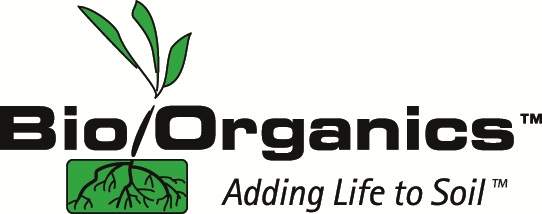So there's this patch of soil that's been farmed for decades - pretty much like all the other crop land in the county. For centuries, it was native grassland with lush growth year after year, with no added fertilizer (other than maybe some buffalo dung now and then).
And then the sod busters came with their plows. Again, the "virgin soil" was very productive with no added fertilizer. A few farms had cow manure available, but supplies were usually limited.
And then came the big change. Enterprising chemical corporations, looking for a new market after World War II, developed NPK fertilizers in convenient granular form. Plow, fertilize, seed, harvest, plow, fertilize, seed, harvest - the agricultural equivalent of Henry Ford's production line. The soil began throwing off yields far greater than ever before and farmers bought air-conditioned tractors.
But the soil was changing. The microscopic organisms and earthworms that had provided nutrients for native plants were either greatly reduced in numbers or completely eliminated by the new procedures. The new "crop grasses", primarily corn, were now dependent on the tons of human-provided "plant food" trucked in from distant factories. The soil became nearly devoid of life and essential humic, minor and trace elements were depleted. Salt buildup and compaction were increasing problems.
Modern agriculture is nearing a decision point. Will we continue overusing synthetic fertilizer and ignoring soil biology until our valuable crop acreages are completely destroyed? Will it be the cost of nitrogen fertilizer or nitrate contamination of drinking water that finally forces us to change? It's every grower's choice: continue reducing the plant-friendly organisms in their soil or begin reintroducing and rebuilding those microbial populations.
We can't promise overnight restoration of damaged soils, but using nature's powerful methods of growing plants can most definitely be used to grow abundant food crops. The beneficial soil organisms really don't distinguish between native grasses and introduced plants like corn or soybeans - although some selective breeding will be needed to identify plant varieties that are the best adapted to biological methods, just as so many varieties were bred to be chemically fed.
Those who want to explore alternatives to NPK fertilizer should contact me. Last year, a large California farmer actually ordered mycorrhizal inoculant because his Extension Agent (typically a very chemistry-oriented bunch) said his yield problems were probably due to a lack of beneficial organisms in the soil - a first! Perhaps this coming year, I'll get two or three such calls?
Hey, encouraging signs are always welcome here.
Cheers, and good growing,
Don Chapman
President, BioOrganics, Inc.
